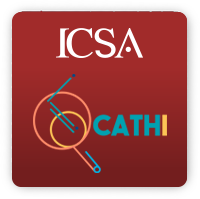Reliability Generalization of the Motivated Strategies for Learning Questionnaire: A Meta-Analytic View of Reliability Estimates
A reliability generalization meta-analysis was performed to explore the relationship between study factors and levels of alpha reliability for the 15 subscales of the Motivated Strategies for Learning Questionnaire (MSLQ). The MSLQ has been widely adapted over the past 25 years to investigate the ro...
Saved in:
| Main Author: | |
|---|---|
| Other Authors: | , , , , , , , |
| Format: | Artículo |
| Language: | en_US |
| Published: |
2018
|
| Subjects: | |
| Online Access: | https://doi.org/10.1177/2158244018802334 http://journals.sagepub.com/doi/full/10.1177/2158244018802334 |
| Tags: |
Add Tag
No Tags, Be the first to tag this record!
|
| Summary: | A reliability generalization meta-analysis was performed to explore the relationship between study factors and levels of alpha reliability for the 15 subscales of the Motivated Strategies for Learning Questionnaire (MSLQ). The MSLQ has been widely adapted over the past 25 years to investigate the role of motivation and strategies in learning, primarily at the postsecondary level. A literature search from the years 1991 to 2015 yielded 295 peer-reviewed journal articles and 1,369 alpha reliability coefficients. Articles were coded for six potential moderator study variables. A novel varying coefficient (VC) model was adopted to determine average reliabilities across studies for each subscale and to perform multiple regression analyses to identify study variables that may moderate alpha reliability estimates. Commonality analyses were used to aid in interpretation of regression results. Meta-analyzed alpha reliabilities were lower than values published in the test manual for all but three of the subscales. Ability of specific moderators to predict score reliability varied across subscales; however, studies in North America, in English, or using a 7-point response scale generally corresponded to increased reliability estimates. Knowledge of expected levels of score reliability under varying sample and study conditions may provide useful information for researchers planning future use of the MSLQ. |
|---|
